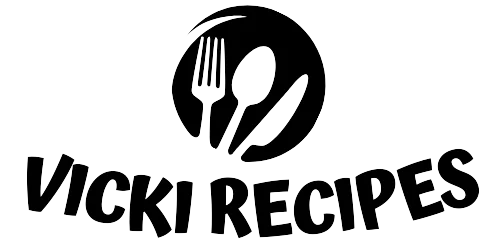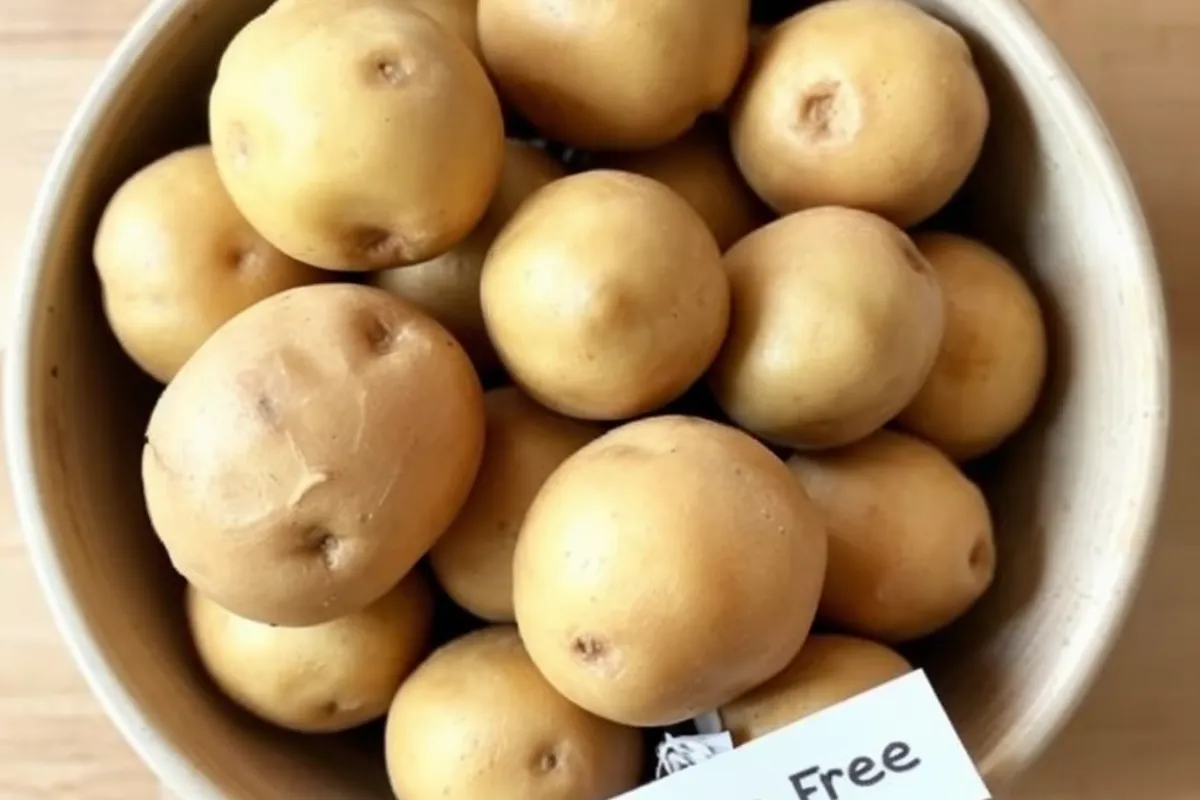Potatoes are a staple in many diets around the world, loved for their versatility and satisfying taste. However, if you’re dealing with gluten intolerance or celiac disease, you might wonder, Can I eat potatoes if I am gluten intolerant? Understanding whether potatoes are safe for a gluten-free diet is crucial for maintaining your health and enjoying your meals without worry.
Introduction to Gluten Intolerance and Celiac Disease
Gluten is a protein found in wheat, barley, and rye. It plays a significant role in giving bread its chewy texture and helping it rise. However, for those with gluten intolerance or celiac disease, consuming gluten can lead to serious health issues. Celiac disease is an autoimmune disorder where eating gluten triggers an immune response that damages the small intestine, leading to nutrient malabsorption. On the other hand, gluten sensitivity can cause symptoms like bloating, diarrhea, and fatigue, without the intestinal damage seen in celiac disease.
For those newly diagnosed or looking to learn more, understanding the differences between these conditions is essential. To delve deeper into this, you might want to check out this comprehensive guide on celiac disease.
Are Potatoes Naturally Gluten-Free?
In their natural state, potatoes are gluten-free. They are starchy root vegetables and do not contain any gluten proteins. This makes them a safe option for individuals with gluten intolerance or celiac disease. Potatoes are not only gluten-free, but they are also rich in nutrients like potassium, vitamin C, and fiber, making them a healthy addition to any diet.
However, the preparation and processing of potatoes can introduce gluten, making it crucial to understand how to keep potatoes gluten-free. Misconceptions about gluten content in naturally gluten-free foods like potatoes are common, so it’s important to be well-informed.
For more detailed information on gluten-free foods and how to identify them, you can explore these gluten-free potato recipes.
Different Types of Potatoes and Their Gluten-Free Status
There are various types of potatoes, each offering different textures and flavors. The most common types include:
- Russet Potatoes: Often used for baking and mashing, russet potatoes are naturally gluten-free and starchy.
- Yukon Gold Potatoes: Known for their buttery flavor, these potatoes are also gluten-free and perfect for roasting or mashing.
- Sweet Potatoes: These are naturally sweet and gluten-free, often used in dishes like sweet potato fries or casseroles.
- Red Potatoes: These smaller, waxy potatoes are gluten-free and great for boiling or roasting.
All these potato varieties are naturally gluten-free, making them safe for those with gluten intolerance. However, how you prepare and cook them can affect their gluten-free status.
Common Ways Potatoes Can Be Contaminated with Gluten
Even though potatoes are naturally gluten-free, they can become contaminated with gluten through various means:
- Cross-Contamination in the Kitchen: When potatoes are prepared in a kitchen that also handles gluten-containing foods, cross-contamination can occur. For example, using the same cutting board, knife, or fryer for both gluten-containing foods and potatoes can introduce gluten to the dish.
- Gluten-Containing Ingredients Used in Potato Dishes: Some recipes call for ingredients like flour or bread crumbs as thickeners or coatings for potato dishes. These gluten-containing ingredients can make what would otherwise be a gluten-free dish unsafe.
- Processed Potato Products: Items like instant mashed potatoes, frozen French fries, and potato chips can sometimes contain gluten. This is often due to the addition of gluten-containing ingredients like malt flavoring or modified food starch.
To ensure your potatoes remain gluten-free, it’s crucial to be aware of these potential sources of contamination.
Preparing Gluten-Free Potato Dishes at Home
The best way to guarantee that your potato dishes are gluten-free is to prepare them at home. Here’s how you can do it:
- Start with Fresh Potatoes: Begin with fresh, whole potatoes. Avoid pre-cut or pre-packaged potatoes that may have been processed in facilities that handle gluten.
- Use Gluten-Free Ingredients: When mashing or seasoning your potatoes, use ingredients like butter, milk, and spices that are certified gluten-free. Be cautious with additives like gravies or sauces, which may contain gluten.
- Prevent Cross-Contamination: Ensure that all utensils, cutting boards, and cookware are free from gluten contamination. Wash them thoroughly before use, or have separate tools dedicated to gluten-free cooking.
By following these steps, you can enjoy a variety of delicious and safe potato dishes at home.
Eating Potatoes Safely When Dining Out
Eating out with a gluten intolerance can be challenging, but it’s still possible to enjoy potato dishes safely:
- Communicate Your Dietary Needs: Always inform the restaurant staff about your gluten intolerance and ask them to prepare your dish in a way that avoids gluten contamination.
- Ask About Preparation Methods: Inquire whether the potatoes are cooked in a shared fryer or if any gluten-containing ingredients are used in the preparation. For example, some restaurants may use flour or breadcrumbs in mashed potatoes or fry potatoes in oil that has also been used for breaded items.
- Identify Safe Dishes: Look for potato dishes that are less likely to contain gluten, such as baked potatoes, roasted potatoes, or simple boiled potatoes. Avoid dishes that come with gravy or are described as “crispy,” as they might have a gluten-containing coating.
Dining out can be enjoyable with proper communication and a good understanding of the menu.
Gluten-Free Potato Recipes and Variations
Here are some creative and gluten-free ways to enjoy potatoes:
- Mashed Potatoes: Boil and mash potatoes with butter and milk for a classic side dish. For a twist, add roasted garlic or herbs like chives or rosemary.
- Baked Potatoes: Bake whole potatoes and top them with gluten-free sour cream, chives, and shredded cheese. You can also load them with steamed broccoli and bacon bits for a hearty meal.
- Roasted Potatoes: Toss potato wedges in olive oil, salt, and pepper, and roast them until crispy. Add a sprinkle of smoked paprika or garlic powder for extra flavor.
- Sweet Potato Fries: Cut sweet potatoes into thin strips, toss them with olive oil and your favorite spices, and bake until crispy. Serve with a gluten-free dipping sauce like honey mustard or aioli.
These recipes are naturally gluten-free and can be enjoyed by anyone on a gluten-free diet.
Common Myths About Potatoes and Gluten Intolerance
There are several myths and misconceptions about potatoes and gluten. Here are a few common ones:
- Myth: All potato dishes are gluten-free.
- Fact: While potatoes themselves are gluten-free, the way they are prepared can introduce gluten. For example, adding gravy, using a shared fryer, or coating potatoes with flour can make them unsafe for those with gluten intolerance.
- Myth: Instant mashed potatoes are always gluten-free.
- Fact: Many instant mashed potato products contain additives like modified food starch, which may be derived from wheat and contain gluten. Always check the label before purchasing.
- Myth: Sweet potatoes are more likely to contain gluten than regular potatoes.
- Fact: Both sweet potatoes and regular potatoes are naturally gluten-free. The risk of gluten contamination depends on how they are prepared, not the type of potato.
Understanding these myths helps ensure that you make informed decisions about what you eat.
FAQs About Eating Potatoes with Gluten Intolerance
Here are some frequently asked questions about potatoes and gluten intolerance:
- Are all potatoes safe for gluten-intolerant individuals?
Yes, all potatoes are naturally gluten-free. The key is to ensure they are prepared in a way that avoids gluten contamination. - What should I look out for when buying processed potato products?
Always check the ingredient list for any gluten-containing additives like malt flavoring or modified food starch. Look for products labeled “gluten-free” to be sure. - How can I avoid gluten cross-contamination when preparing potatoes?
Use separate utensils, cutting boards, and cookware that are free from gluten contamination. If possible, have dedicated tools for gluten-free cooking. - Is it safe to eat potato-based dishes at restaurants?
It can be, but you should always communicate your dietary needs to the restaurant staff. Ask about the preparation methods and avoid dishes that might be contaminated with gluten. - Can sweet potatoes and other root vegetables be a part of a gluten-free diet?
Yes, sweet potatoes and other root vegetables are naturally gluten-free and can be safely included in a gluten-free diet. - What are the best gluten-free potato substitutes for traditional wheat-based dishes?
You can use potatoes as a base for gluten-free versions of dishes like shepherd’s pie, gnocchi, or even potato bread. - How do I know if a potato dish contains gluten?
The best way to know is to ask how the dish was prepared or to check the ingredients list if you’re buying a processed product. Look for potential gluten-containing ingredients like flour, breadcrumbs, or malt.
Conclusion: Enjoying Potatoes on a Gluten-Free Diet
Potatoes are a versatile, nutritious, and naturally gluten-free food that can be safely enjoyed by those with gluten intolerance or celiac disease. However, it’s important to be aware of potential sources of gluten contamination and take steps to ensure your potato dishes remain safe. By preparing potatoes at home with gluten-free ingredients or being vigilant when dining out, you can enjoy this beloved staple without compromising your health.
For more information on how to cook and enjoy gluten-free meals, you might want to check out these tips for avoiding cross-contamination in the kitchen.

